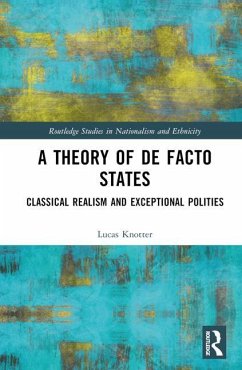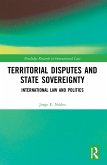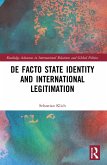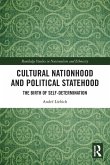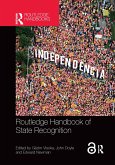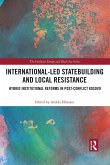A Theory of De Facto States offers a new perspective on the phenomenon of de facto states - political communities that manifest forms of statehood in international politics but lack international legal recognition - zooming in on two prominent examples, Somaliland and Kosovo.
Employing a thorough understanding of classical realist theories of international relations, this book provides a fresh critique of the common ways in which existing research tends to identify the ostensible state features of these communities. In contrast to the prevalent portrayals of such features in terms of international legal, discursive, and/or everyday logics, this book argues that de facto states can be most fundamentally characterised as exceptional polities in international relations.
Showcasing how the statehood and sovereignty of de facto states is based in international political crises, this book concludes that these entities function as recurring disruptions of any supposed international political order. A Theory of De Facto States will therefore be of interest to researchers of secession, de facto statehood, and International Relations theory alike.
Employing a thorough understanding of classical realist theories of international relations, this book provides a fresh critique of the common ways in which existing research tends to identify the ostensible state features of these communities. In contrast to the prevalent portrayals of such features in terms of international legal, discursive, and/or everyday logics, this book argues that de facto states can be most fundamentally characterised as exceptional polities in international relations.
Showcasing how the statehood and sovereignty of de facto states is based in international political crises, this book concludes that these entities function as recurring disruptions of any supposed international political order. A Theory of De Facto States will therefore be of interest to researchers of secession, de facto statehood, and International Relations theory alike.

